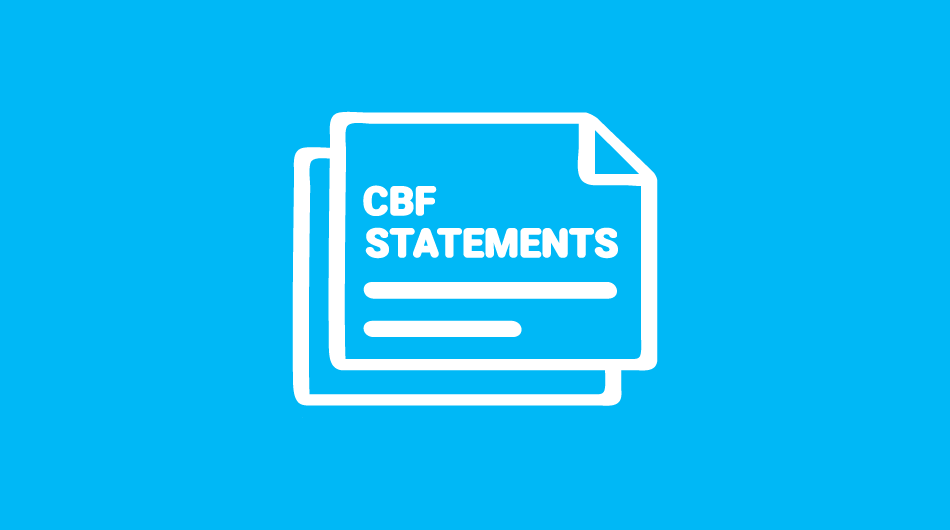
CBF response to the 2022 LeDeR report
The 2022 Learning from Lives and Deaths (LeDeR) report, which looks at the deaths of people with a learning disability and autistic people and aims to improve health and care, has been published. We send our condolences to everyone who has lost a loved one.
The 2022 Learning from Lives and Deaths – People with a Learning Disability and Autistic People (LeDeR) report has now been published. This report, which is produced by KCL, UCLAN and Kingston University London and is funded by NHS England, looks at the lives and deaths of people with a learning disability and autistic people, with the aim of improving care, reducing health inequalities, and preventing people with a learning disability and autistic people from dying prematurely.
The key message of the report is that people with learning disabilities die prematurely, with nearly half of the deaths judged as being preventable. In 2007, the Death by Indifference report exposed the issues – 16 years and numerous reports later there has not been enough progress to address these issues.
Some of the key findings of this report include:
- The median age of death for adults with a learning disability is now 63 years, compared to last year’s median age of 61 –19 years lower than the average UK life expectancy
- The proportion of deaths due to avoidable causes remains high, but has slightly reduced – 42%, compared to 49% in 2021
- The number of deaths caused by Covid-19 are much lower than the previous year, but people with a learning disability are still more likely to die of Covid than the general population, and should keep being prioritised for vaccinations
- People with a learning disability from minority ethnic backgrounds are more likely to die earlier than people with a learning disability from white backgrounds
- People with a learning disability are more likely to die during heatwaves than the general population, meaning that more work needs to be done to make sure that they are less vulnerable to changes in the climate
You can find an infographic of the key findings here
Crucially, the report also found that having an effective care package in place reduces the likelihood of dying prematurely. Many people with a learning disability and their families face difficulties trying to get the right support in place, with a lack of funding, understanding and services meaning that far too many people are unable to access the community support that they need. This must be a wake up call for proper investment in providing comprehensive and timely care and support packages that can meet people’s needs.
This most recent report shows that there have been some improvements in the health of, and care received by, people with a learning disability – but also that the progress is far too slow. We are pleased to see that there has been a reduction in the proportion of ‘avoidable’ deaths – but this number is still over 40%. The figures in the report show that although reasonable adjustments were in place more often than in the previous year, they were still not made in a quarter of cases where they should have been. Change is not happening quickly enough.
The Staying Alive and Well Group, made up of people with a learning disability who informed the authors of the LeDeR report, described this report as the “Spot the Difference” report – because “we are saying the same things year after year after year”. Reports, including those produced by the LeDeR programme, highlight the same issues and make the same recommendations, but these do not translate into practice. Incremental improvements – in life expectancy, in reasonable adjustments, in how many deaths could have been avoided – are not enough. We need radical change, sustained investment, and a holistic, person-centred approach to health and care. We echo the calls of this report, and decades of others, to take action to make sure that people with a learning disability live long lives.
You can read the full LeDeR report here
You can read NHS England’s ‘Action from Learning’ report here
CBF resources
The CBF has a range of resources on health and care, which you can read below.
Read our information and guidance on health
Read our information and guidance on reasonable adjustments
Read our information and guidance on getting the right support package
The CBF has also co-produced a Family Carer Advocacy Resource with family carers and advocacy organisations, which includes information which may be helpful.
Read the full Family Carer Advocacy Resource
Read the section on physical, emotional and mental health
Read the section on living a good and meaningful life
Support from the CBF
Resources on our website
The CBF has information available for anyone who has concerns about the issues raised which can be found here:
Family Support Service
If you have been affected by any of the issues raised in this statement, you can call the Family Support Service on 0300 666 0126
Or email us at support@thecbf.org.uk
We are open at the following times:
Monday – Thursday: 9am – 5pm
Friday: 9am – 3pm
We offer information about challenging behaviour to anyone who provides support to a child, young person or adult with a severe learning disability. We can also signpost you to other specialist organisations and sources of information.
Please note we are a small support service so you may not be able to get support straight away. We will support families with urgent concerns as a priority.
Professionals are also welcome to contact the CBF.
